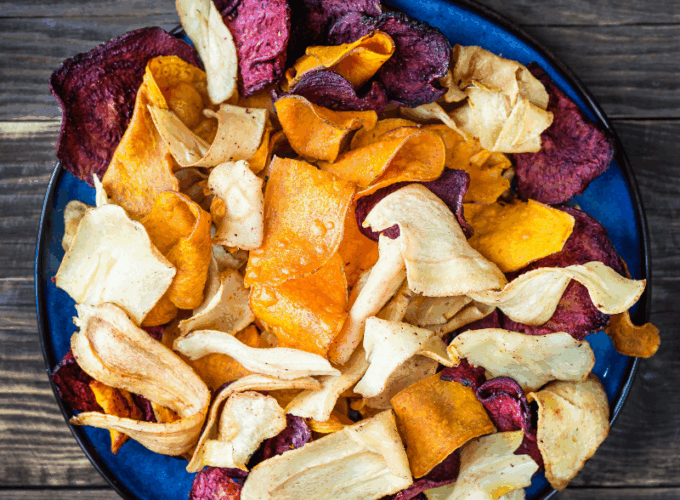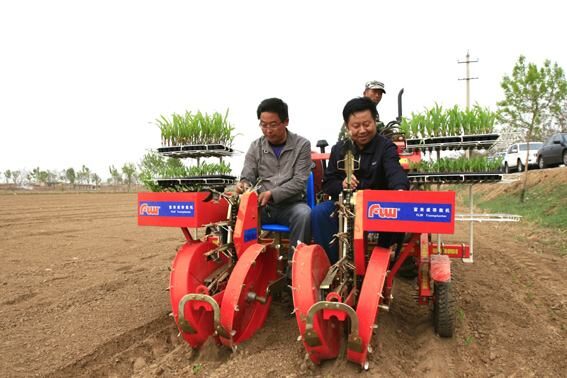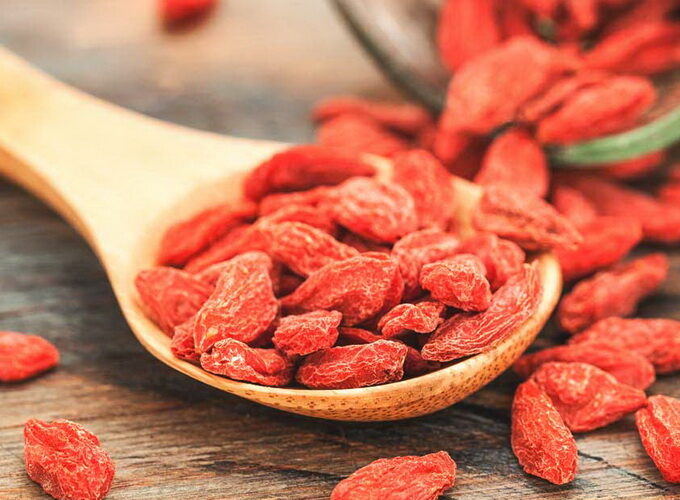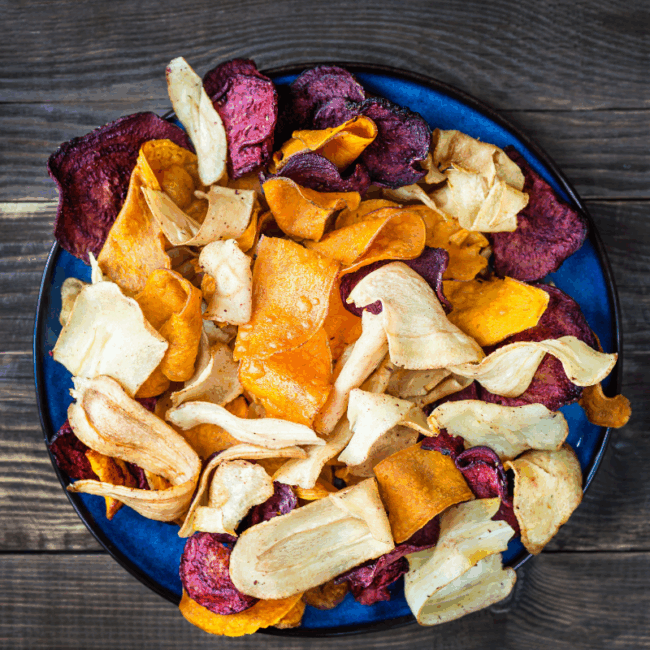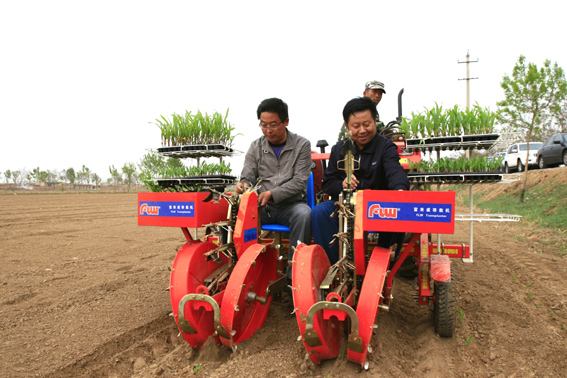
The first tree of goji berry of Ningqi No.5 was found in production orchard of goji berry of Ningqi No.1, and it was the clone after asexual reproduction.The goji berry of Ningqi No.5 has advantages of high and stable yield, large fruit, good taste, easy pick and high profit.
1. Characters of fruits
The goji berries are orange red with bright surface, the average weight of each fruit is 1.1 grams, and its weight can be 3.2 grams at max. The index of fresh fruit is 2.2, the waist of fruit is straight without ridges, the vertical section of fruit is a circle, and the tip of the fruit is a blunt, the verticaldiameter and transverse diameter of fruit are about 2.54cm and 1.74cm, the flesh is 0.16cm thick with 15-40 seeds. The fruits can be dried in sunny days after 4.5 days with dietary alkali in Ningxia, the fresh fruit to dried fruit is 4.3 to 1, and the dried are red and glossy with 56% of sugar, 3.49% of goji berry polysaccharide, 1.20 mg /100 g of carotene and0.98g/100 g of betaine. The fruits are resistant to squeeze, the comfortable depth of basket for bearing fruit is 30 ~ 35 cm.
2. Botanical characteristics
The tree of goji berry of Ningqi No.5 is strong and big with supple branches, the flowers are 1.8cm long and the diameters of petals are 1.6cm. the styles are longer than anther of stamen, the fresh anther is white and dissilient without loose power, corolla lobes become purpleafter blooming, the yellow corolla tube throat is a star ship set by the purple lobes in blossom period, the wall of corolla tube is pale yellow, and there are some fluffs near the base of filament, the calyx is broken. The leaves are dark green and thick, the old leaves are blue green flat veins, the leaves of biennial branches are lanceolate and fascicled, the leaves of annual branches are alternate and lanceolate, and the middles are wide while the tips are sharp, the leaves are 3-5cm long, and the length to width is 4.12 to 4.38. The annual branches are yellow white with purple stripes on tips, the tips of annual fruiting branches are slender, the internodes of tips are long, the fruiting shoots are slim, soft and long, which will not influence picking. The internodes are 1.3 ~ 2.5 cm long, 70% of fruiting shoots are 40 ~ 70 cm long, there are some sharp twigs at the later 1/3 part of old shoots, fruiting shoots bear fruits at 8 ~ 15 cm, the internodes are 1.13 cm.
3. Biological characteristics
Phenological period: the plants sprout from 13th April, grow year old branches from April 23rd, grow annual branches from May 11th, ripen fruits from May 30th, bear a large number of fruits from June 9th, and grow autumn branches from July 16th.
Habits of growing and bearing: the trees are 1.6m high, 6.38cm wide with 1.7m of crown diameter after planted for 6 years. The branches are opened and the trees are dense, the saplings have strong growth potential, and can transform to reproductive growth after pinched two times, on average, year old branch can bear about 2.1 fruits on each internode, the annual branches with 8.2 internodes can bear 0.8 fruit on each internode, the branching ability of secondary branches after cut is 4.5, the branching ability of secondary branches without cut is 10.4. The effective length of 70% of fruiting branches is 40-70cm.
4. Stress resistance
The plants have strong resistances on insects, powdery mildew and thrips, and weak on resisting root rot. Fruits will be broken after raining. Plants are fond of sunshine with tolerance to cold and drought and can not tolerate dank and wet environment.
5. Economic characteristics
The yield per mu is 240-260 kilograms with 269 /50 grams of dried fruits, and the rate of bearing super fruit is about 100%.
6. Cultivation Techniques
Planting: people should choose medium or light loam to grow, and theunderground water level should be lower than 100 cm. As for a small area of artificial cultivation, the row spacing of plants is 1.5 *2 meters; the young trees can be planted densely. As for a large area of artificial cultivation, the row spacing of plants is 1 * 2.8 ~ 3 meters, male sterileplants need pollination trees to reproduce, and the proper pollination trees are goji berries of Ningqi No.1and Ningqi No.4.
Mixed planting methods: people should mix them with 1-2 plants and raise bees in the production area.

